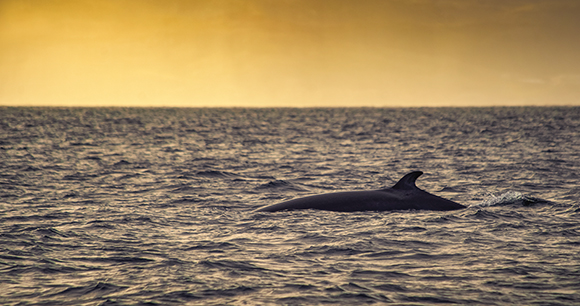Since 2021, AWI and colleagues have called on the governments of Norway and the United States to withdraw permits and funding for a controversial research study that involves the capture of minke whales in Norwegian waters to test their hearing. The project involves herding juvenile minke whales into a netted-off passageway leading to an aquatic pen, trapping them inside. “Auditory evoked potential” testing involves the placement of electrodes on the whales for up to six hours; these electrodes measure their brain waves when they are exposed to various sounds. This method does not require the whale to visibly react; the brain waves indicate what sounds they can hear.

The multi-year project, funded by the US government, Norway’s Defense Research Establishment (FFI), and the energy industry, has been fraught with problems since it began in spring 2021. Last year, the researchers had to release a juvenile minke they had captured after the whale became extremely stressed and vomited. Then, in June 2023, FFI researcher Dr. Petter Kvadsheim reported that the test site had been damaged by powerful winds and strong tidal currents. One of the 2,200-pound anchors securing the net had been dragged some 260 feet out of alignment into deeper water. When researchers inspected the damage using an ROV, they discovered that a minke whale had become entangled in the net and drowned.
Despite this, the study was allowed to continue following a short suspension. Two juvenile minkes were finally tested, satellite-tagged, and released. Both were assessed to see if they registered certain sounds, and one was tested further on hearing frequency range. According to Kvadsheim, the whale could detect far higher frequencies than previously assumed for baleen whales.
AWI continues to be concerned about the design of this study and the tremendous stress inflicted on individual whales. Perhaps of broader concern, however: The preliminary data obtained at the expense of these unfortunate test subjects suggests an even greater sensitivity among whales to the noises we generate—and thus a more urgent need to be quieter guests in the ocean.